
After being displaced by numerous California wildfires and landslides, naturalist/educators and longtime Esalen community members Noël Vietor and Fletcher Tucker asked themselves how they could be in service to a new paradigm in which people are a reparative and beneficial force of nature. Their answer is Wildtender, which they launched in 2017.
Through Wildtender, Noël and Fletcher offer nature-inspired outdoors programs focusing on both inner and outer wilderness.
Next April, Esalen and Wildtender will present Wildtender Pilgrimage: Big Sur Backpacking Journey to Esalen. During this seven-day experience, participants will spend four days backpacking in Big Sur’s magnificent wilderness areas, and then finish with a weekend at Esalen.
We spoke with Noël and Fletcher about the origins of Wildtender and their deep roots at Esalen.
Esalen News: What inspired you to create Wildtender?
Noël: We had the very good fortune to live for nearly a decade in Big Sur. Much of this time felt like an apprenticeship with the place: we devoured the stories and history from books and elders, hiked the backcountry for days and days, became familiar with the plants and animals, witnessed the changes in the landscapes and seasons, and tried to learn how to be good stewards of the land.
Fletcher: Being a “Wildtender” means tending to our inner and outer landscapes. In the outer sense, this means a practice of active engagement with wild nature, showing up in stewardship and companionship with all the non-human beings we share our environment with. We created Wildtender to help other people reclaim a sense of true belonging and beneficial participation in nature – to find meaningful connection with the wild and themselves.
Esalen News: How did your time at Esalen prepare you for your journey as a Wildtender?
Noël: We both came to Esalen to study sustainable agriculture as apprentices in the Farm & Garden. By learning to grow food, we hoped to become more resilient and self-sufficient, to live simply and with purpose, and to deepen our connection to the earth and our selves. After completing my apprenticeship in 2010, I stayed on as the Farm & Garden education coordinator (2010-2015). Fletcher completed his apprenticeship in 2011 and stayed on as a field hand for another year. Fletcher also worked at Gazebo Park School as an assistant teacher.
During our period as Esalen students and staff, we explored our inner emotional and spiritual landscapes through many modalities. During that time, we witnessed an essential and beneficial connection between our inner and outer landscapes. We found wild nature to be a fertile and healing container for personal growth.

Fletcher: There is nothing quite like working with a piece of land for a sustained period of time, and no land really compares to Esalen. Farming is always elemental – our allies are sun, water, soil and air. But there is something extra potent about seeding beds on the bluffs of Esalen’s wave-battered cliffs, and harvesting crops as the sun rises over the mountains; these are primordial experiences that make a permanent shape in a person. We as Wildtenders took root alongside the kale and chard in the humus-rich soil of the Esalen garden.
Our Wildtender programs are deeply informed by our backgrounds in the Esalen Farm & Garden and its unique model of relational agriculture. Like the Farm & Garden, Wildtender facilitates meaningful, educational experiences that connect people with the land, themselves and each other.
Esalen News: You have named Esalen co-founder Dick Price as part of the inspiration for your work in the wild. Would you share more about this connection?
Noël: While we never got to meet Dick himself, Fletcher and I have been fortunate to study and practice extensively with Steven Harper and Dorothy Charles, who have carried Dick’s work forward at Esalen and beyond. We are honored to contribute in our own humble way to the legacy of Gestalt and wilderness practice. As Dick used Big Sur wilderness as an immersive container for his own healing and self-exploration, we too have encountered extraordinary expansion and healing in nature.

Dick Price’s tradition of Gestalt Practice focuses on developing present-centered awareness, making contact with sensation and emotion, exploring interpersonal and intrapersonal issues, and practicing self-expression and communication… His vision for Gestalt Practice was non-hierarchical – dismantling the therapist and client dynamic, just people practicing awareness together and reflecting each others’ experience.
Our Wildtender work follows this vein and extends it to nature. We want to help people cultivate direct and intimate relationships with themselves and the natural world. Our role is to encourage curiosity, openness, sensory experience, and presence. When we come across something interesting on the trail, we are more inclined to ask questions than give answers.
Because many people have conscious or unconscious fears about being in wilderness, we strive to create an environment of safety, trust and supportive (yet flexible and responsive) structure. Feeling safe outdoors frees people to encounter the wonder and beauty of the wild, and connect meaningfully with themselves and the group.
Esalen News: Why is pilgrimage into the wilderness important in our 21st-century lives?
Fletcher: So many of us feel disconnected, unhealthy, and lost these days. Our 21st-century lives are stressful, overscheduled, and too technologically dependent. Wild pilgrimage, or more plainly, journeying through wilderness with intention, allows us to shed some of the shortcomings of modern life, return to a more “natural” state of being, and discover peace and wholeness in nature.
Noël: Having been displaced by a handful of California wildfires and landslides in recent years, we (like so many people) have begun to feel the grave loss and physical/psychic impacts of climate change. These experiences have ignited us to question how we can be in service to a new human paradigm, one in which humans are a reparative and beneficial force of nature.
The Earth is suffering and calls out for our awareness, connection, and care — as do our deep inner selves. We organize Wildtender group programs because of the urgent need for all human beings to come alive, to untangle the social conditioning that has alienated us from our communities and nature, and to reclaim our power as change agents and stewards of this planet.
Learn more about Wildtender Pilgrimage: Big Sur Backpacking Journey to Esalen.

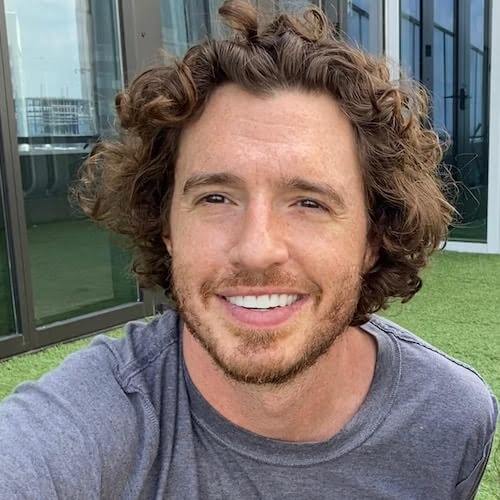
“Remembering to be as self compassionate as I can and praying to the divine that we're all a part of.”
–Aaron
“Prayer, reading, meditation, walking.”
–Karen
“Erratically — which is an ongoing stream of practice to find peace.”
–Charles
“Try on a daily basis to be kind to myself and to realize that making mistakes is a part of the human condition. Learning from our mistakes is a journey. But it starts with compassion and caring. First for oneself.”
–Steve
“Physically: aerobic exercise, volleyball, ice hockey, cycling, sailing. Emotionally: unfortunately I have to work to ‘not care’ about people or situations which may end painfully. Along the lines of ‘attachment is the source of suffering’, so best to avoid it or limit its scope. Sad though because it could also be the source of great joy. Is it worth the risk?“
–Rainer
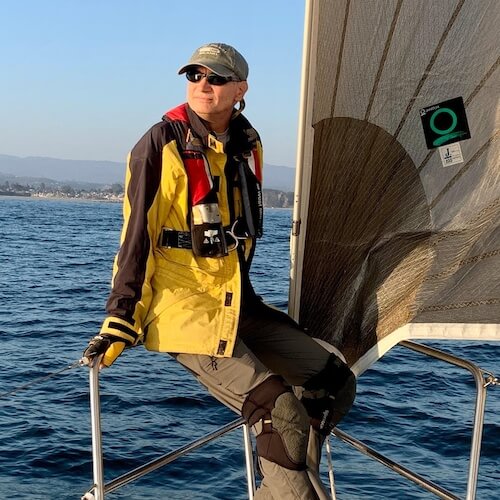
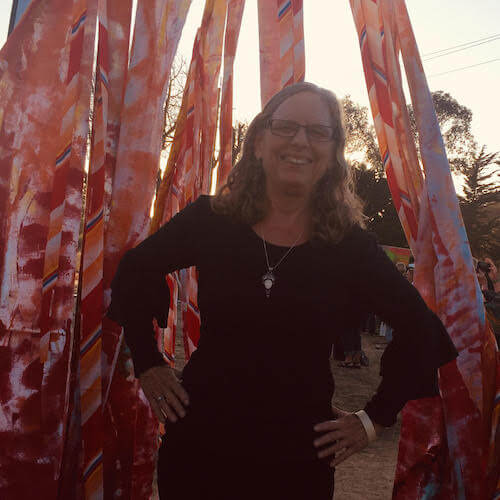
“It's time for my heart to be nurtured on one level yet contained on another. To go easy on me and to allow my feelings to be validated, not judged harshly. On the other hand, to let the heart rule with equanimity and not lead the mind and body around like a master.”
–Suzanne
“I spend time thinking of everything I am grateful for, and I try to develop my ability to express compassion for myself and others without reservation. I take time to do the things I need to do to keep myself healthy and happy. This includes taking experiential workshops, fostering relationships, and participating within groups which have a similar interest to become a more compassionate and fulfilled being.“
–Peter
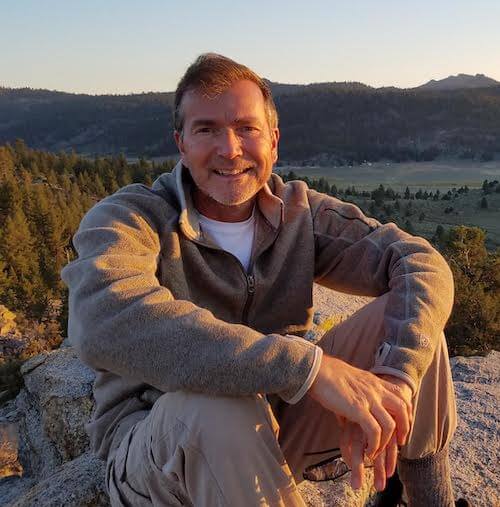
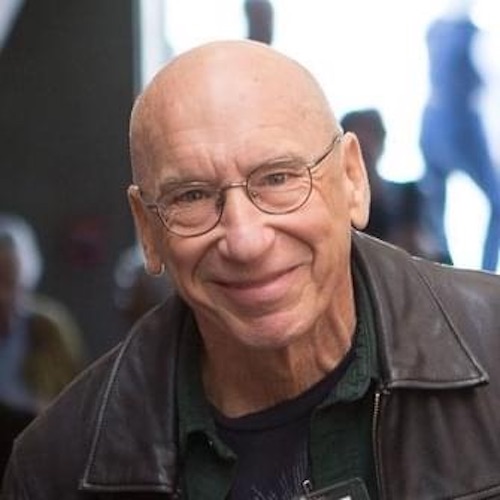
“Self-forgiveness for my own judgments. And oh yeah, coming to Esalen.”
–David B.
“Hmm, this is a tough one! I guess I take care of my heart through fostering relationships with people I feel connected to. Spending quality time with them (whether we're on the phone, through messages/letters, on Zoom, or in-person). Being there for them, listening to them, sharing what's going on with me, my struggles and my successes... like we do in the Esalen weekly Friends of Esalen Zoom sessions!”
–Lori
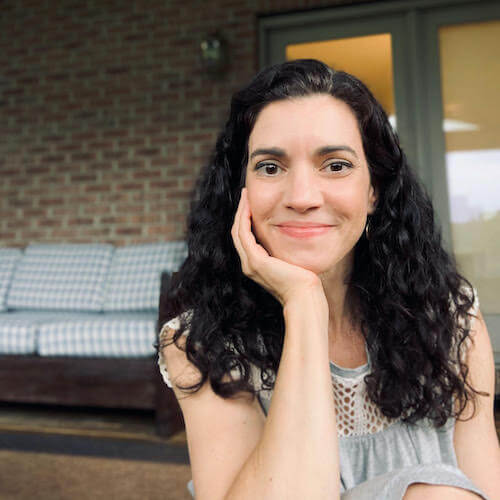
“I remind myself in many ways of the fact that " Love is all there is!" LOVE is the prize and this one precious life is the stage we get to learn our lessons. I get out into nature, hike, camp, river kayak, fly fish, garden, I create, I dance (not enough!), and I remain grateful for each day, each breath, each moment. Being in the moment, awake, and remembering the gift of life and my feeling of gratitude for all of creation.”
–Steven
“My physical heart by limiting stress and eating a heart-healthy diet. My emotional heart by staying in love with the world and by knowing that all disappointment and loss will pass.“
–David Z.
Today, September 29, is World Heart Day. Strike up a conversation with your own heart and as you feel comfortable, encourage others to do the same. As part of our own transformations and self-care, we sometimes ask for others to illuminate and enliven our hearts or speak our love language.
What if we could do this for ourselves too, even if just for today… or to start a heart practice, forever?

After being displaced by numerous California wildfires and landslides, naturalist/educators and longtime Esalen community members Noël Vietor and Fletcher Tucker asked themselves how they could be in service to a new paradigm in which people are a reparative and beneficial force of nature. Their answer is Wildtender, which they launched in 2017.
Through Wildtender, Noël and Fletcher offer nature-inspired outdoors programs focusing on both inner and outer wilderness.
Next April, Esalen and Wildtender will present Wildtender Pilgrimage: Big Sur Backpacking Journey to Esalen. During this seven-day experience, participants will spend four days backpacking in Big Sur’s magnificent wilderness areas, and then finish with a weekend at Esalen.
We spoke with Noël and Fletcher about the origins of Wildtender and their deep roots at Esalen.
Esalen News: What inspired you to create Wildtender?
Noël: We had the very good fortune to live for nearly a decade in Big Sur. Much of this time felt like an apprenticeship with the place: we devoured the stories and history from books and elders, hiked the backcountry for days and days, became familiar with the plants and animals, witnessed the changes in the landscapes and seasons, and tried to learn how to be good stewards of the land.
Fletcher: Being a “Wildtender” means tending to our inner and outer landscapes. In the outer sense, this means a practice of active engagement with wild nature, showing up in stewardship and companionship with all the non-human beings we share our environment with. We created Wildtender to help other people reclaim a sense of true belonging and beneficial participation in nature – to find meaningful connection with the wild and themselves.
Esalen News: How did your time at Esalen prepare you for your journey as a Wildtender?
Noël: We both came to Esalen to study sustainable agriculture as apprentices in the Farm & Garden. By learning to grow food, we hoped to become more resilient and self-sufficient, to live simply and with purpose, and to deepen our connection to the earth and our selves. After completing my apprenticeship in 2010, I stayed on as the Farm & Garden education coordinator (2010-2015). Fletcher completed his apprenticeship in 2011 and stayed on as a field hand for another year. Fletcher also worked at Gazebo Park School as an assistant teacher.
During our period as Esalen students and staff, we explored our inner emotional and spiritual landscapes through many modalities. During that time, we witnessed an essential and beneficial connection between our inner and outer landscapes. We found wild nature to be a fertile and healing container for personal growth.

Fletcher: There is nothing quite like working with a piece of land for a sustained period of time, and no land really compares to Esalen. Farming is always elemental – our allies are sun, water, soil and air. But there is something extra potent about seeding beds on the bluffs of Esalen’s wave-battered cliffs, and harvesting crops as the sun rises over the mountains; these are primordial experiences that make a permanent shape in a person. We as Wildtenders took root alongside the kale and chard in the humus-rich soil of the Esalen garden.
Our Wildtender programs are deeply informed by our backgrounds in the Esalen Farm & Garden and its unique model of relational agriculture. Like the Farm & Garden, Wildtender facilitates meaningful, educational experiences that connect people with the land, themselves and each other.
Esalen News: You have named Esalen co-founder Dick Price as part of the inspiration for your work in the wild. Would you share more about this connection?
Noël: While we never got to meet Dick himself, Fletcher and I have been fortunate to study and practice extensively with Steven Harper and Dorothy Charles, who have carried Dick’s work forward at Esalen and beyond. We are honored to contribute in our own humble way to the legacy of Gestalt and wilderness practice. As Dick used Big Sur wilderness as an immersive container for his own healing and self-exploration, we too have encountered extraordinary expansion and healing in nature.

Dick Price’s tradition of Gestalt Practice focuses on developing present-centered awareness, making contact with sensation and emotion, exploring interpersonal and intrapersonal issues, and practicing self-expression and communication… His vision for Gestalt Practice was non-hierarchical – dismantling the therapist and client dynamic, just people practicing awareness together and reflecting each others’ experience.
Our Wildtender work follows this vein and extends it to nature. We want to help people cultivate direct and intimate relationships with themselves and the natural world. Our role is to encourage curiosity, openness, sensory experience, and presence. When we come across something interesting on the trail, we are more inclined to ask questions than give answers.
Because many people have conscious or unconscious fears about being in wilderness, we strive to create an environment of safety, trust and supportive (yet flexible and responsive) structure. Feeling safe outdoors frees people to encounter the wonder and beauty of the wild, and connect meaningfully with themselves and the group.
Esalen News: Why is pilgrimage into the wilderness important in our 21st-century lives?
Fletcher: So many of us feel disconnected, unhealthy, and lost these days. Our 21st-century lives are stressful, overscheduled, and too technologically dependent. Wild pilgrimage, or more plainly, journeying through wilderness with intention, allows us to shed some of the shortcomings of modern life, return to a more “natural” state of being, and discover peace and wholeness in nature.
Noël: Having been displaced by a handful of California wildfires and landslides in recent years, we (like so many people) have begun to feel the grave loss and physical/psychic impacts of climate change. These experiences have ignited us to question how we can be in service to a new human paradigm, one in which humans are a reparative and beneficial force of nature.
The Earth is suffering and calls out for our awareness, connection, and care — as do our deep inner selves. We organize Wildtender group programs because of the urgent need for all human beings to come alive, to untangle the social conditioning that has alienated us from our communities and nature, and to reclaim our power as change agents and stewards of this planet.
Learn more about Wildtender Pilgrimage: Big Sur Backpacking Journey to Esalen.


“Remembering to be as self compassionate as I can and praying to the divine that we're all a part of.”
–Aaron
“Prayer, reading, meditation, walking.”
–Karen
“Erratically — which is an ongoing stream of practice to find peace.”
–Charles
“Try on a daily basis to be kind to myself and to realize that making mistakes is a part of the human condition. Learning from our mistakes is a journey. But it starts with compassion and caring. First for oneself.”
–Steve
“Physically: aerobic exercise, volleyball, ice hockey, cycling, sailing. Emotionally: unfortunately I have to work to ‘not care’ about people or situations which may end painfully. Along the lines of ‘attachment is the source of suffering’, so best to avoid it or limit its scope. Sad though because it could also be the source of great joy. Is it worth the risk?“
–Rainer


“It's time for my heart to be nurtured on one level yet contained on another. To go easy on me and to allow my feelings to be validated, not judged harshly. On the other hand, to let the heart rule with equanimity and not lead the mind and body around like a master.”
–Suzanne
“I spend time thinking of everything I am grateful for, and I try to develop my ability to express compassion for myself and others without reservation. I take time to do the things I need to do to keep myself healthy and happy. This includes taking experiential workshops, fostering relationships, and participating within groups which have a similar interest to become a more compassionate and fulfilled being.“
–Peter


“Self-forgiveness for my own judgments. And oh yeah, coming to Esalen.”
–David B.
“Hmm, this is a tough one! I guess I take care of my heart through fostering relationships with people I feel connected to. Spending quality time with them (whether we're on the phone, through messages/letters, on Zoom, or in-person). Being there for them, listening to them, sharing what's going on with me, my struggles and my successes... like we do in the Esalen weekly Friends of Esalen Zoom sessions!”
–Lori

“I remind myself in many ways of the fact that " Love is all there is!" LOVE is the prize and this one precious life is the stage we get to learn our lessons. I get out into nature, hike, camp, river kayak, fly fish, garden, I create, I dance (not enough!), and I remain grateful for each day, each breath, each moment. Being in the moment, awake, and remembering the gift of life and my feeling of gratitude for all of creation.”
–Steven
“My physical heart by limiting stress and eating a heart-healthy diet. My emotional heart by staying in love with the world and by knowing that all disappointment and loss will pass.“
–David Z.
Today, September 29, is World Heart Day. Strike up a conversation with your own heart and as you feel comfortable, encourage others to do the same. As part of our own transformations and self-care, we sometimes ask for others to illuminate and enliven our hearts or speak our love language.
What if we could do this for ourselves too, even if just for today… or to start a heart practice, forever?

After being displaced by numerous California wildfires and landslides, naturalist/educators and longtime Esalen community members Noël Vietor and Fletcher Tucker asked themselves how they could be in service to a new paradigm in which people are a reparative and beneficial force of nature. Their answer is Wildtender, which they launched in 2017.
Through Wildtender, Noël and Fletcher offer nature-inspired outdoors programs focusing on both inner and outer wilderness.
Next April, Esalen and Wildtender will present Wildtender Pilgrimage: Big Sur Backpacking Journey to Esalen. During this seven-day experience, participants will spend four days backpacking in Big Sur’s magnificent wilderness areas, and then finish with a weekend at Esalen.
We spoke with Noël and Fletcher about the origins of Wildtender and their deep roots at Esalen.
Esalen News: What inspired you to create Wildtender?
Noël: We had the very good fortune to live for nearly a decade in Big Sur. Much of this time felt like an apprenticeship with the place: we devoured the stories and history from books and elders, hiked the backcountry for days and days, became familiar with the plants and animals, witnessed the changes in the landscapes and seasons, and tried to learn how to be good stewards of the land.
Fletcher: Being a “Wildtender” means tending to our inner and outer landscapes. In the outer sense, this means a practice of active engagement with wild nature, showing up in stewardship and companionship with all the non-human beings we share our environment with. We created Wildtender to help other people reclaim a sense of true belonging and beneficial participation in nature – to find meaningful connection with the wild and themselves.
Esalen News: How did your time at Esalen prepare you for your journey as a Wildtender?
Noël: We both came to Esalen to study sustainable agriculture as apprentices in the Farm & Garden. By learning to grow food, we hoped to become more resilient and self-sufficient, to live simply and with purpose, and to deepen our connection to the earth and our selves. After completing my apprenticeship in 2010, I stayed on as the Farm & Garden education coordinator (2010-2015). Fletcher completed his apprenticeship in 2011 and stayed on as a field hand for another year. Fletcher also worked at Gazebo Park School as an assistant teacher.
During our period as Esalen students and staff, we explored our inner emotional and spiritual landscapes through many modalities. During that time, we witnessed an essential and beneficial connection between our inner and outer landscapes. We found wild nature to be a fertile and healing container for personal growth.

Fletcher: There is nothing quite like working with a piece of land for a sustained period of time, and no land really compares to Esalen. Farming is always elemental – our allies are sun, water, soil and air. But there is something extra potent about seeding beds on the bluffs of Esalen’s wave-battered cliffs, and harvesting crops as the sun rises over the mountains; these are primordial experiences that make a permanent shape in a person. We as Wildtenders took root alongside the kale and chard in the humus-rich soil of the Esalen garden.
Our Wildtender programs are deeply informed by our backgrounds in the Esalen Farm & Garden and its unique model of relational agriculture. Like the Farm & Garden, Wildtender facilitates meaningful, educational experiences that connect people with the land, themselves and each other.
Esalen News: You have named Esalen co-founder Dick Price as part of the inspiration for your work in the wild. Would you share more about this connection?
Noël: While we never got to meet Dick himself, Fletcher and I have been fortunate to study and practice extensively with Steven Harper and Dorothy Charles, who have carried Dick’s work forward at Esalen and beyond. We are honored to contribute in our own humble way to the legacy of Gestalt and wilderness practice. As Dick used Big Sur wilderness as an immersive container for his own healing and self-exploration, we too have encountered extraordinary expansion and healing in nature.

Dick Price’s tradition of Gestalt Practice focuses on developing present-centered awareness, making contact with sensation and emotion, exploring interpersonal and intrapersonal issues, and practicing self-expression and communication… His vision for Gestalt Practice was non-hierarchical – dismantling the therapist and client dynamic, just people practicing awareness together and reflecting each others’ experience.
Our Wildtender work follows this vein and extends it to nature. We want to help people cultivate direct and intimate relationships with themselves and the natural world. Our role is to encourage curiosity, openness, sensory experience, and presence. When we come across something interesting on the trail, we are more inclined to ask questions than give answers.
Because many people have conscious or unconscious fears about being in wilderness, we strive to create an environment of safety, trust and supportive (yet flexible and responsive) structure. Feeling safe outdoors frees people to encounter the wonder and beauty of the wild, and connect meaningfully with themselves and the group.
Esalen News: Why is pilgrimage into the wilderness important in our 21st-century lives?
Fletcher: So many of us feel disconnected, unhealthy, and lost these days. Our 21st-century lives are stressful, overscheduled, and too technologically dependent. Wild pilgrimage, or more plainly, journeying through wilderness with intention, allows us to shed some of the shortcomings of modern life, return to a more “natural” state of being, and discover peace and wholeness in nature.
Noël: Having been displaced by a handful of California wildfires and landslides in recent years, we (like so many people) have begun to feel the grave loss and physical/psychic impacts of climate change. These experiences have ignited us to question how we can be in service to a new human paradigm, one in which humans are a reparative and beneficial force of nature.
The Earth is suffering and calls out for our awareness, connection, and care — as do our deep inner selves. We organize Wildtender group programs because of the urgent need for all human beings to come alive, to untangle the social conditioning that has alienated us from our communities and nature, and to reclaim our power as change agents and stewards of this planet.
Learn more about Wildtender Pilgrimage: Big Sur Backpacking Journey to Esalen.


“Remembering to be as self compassionate as I can and praying to the divine that we're all a part of.”
–Aaron
“Prayer, reading, meditation, walking.”
–Karen
“Erratically — which is an ongoing stream of practice to find peace.”
–Charles
“Try on a daily basis to be kind to myself and to realize that making mistakes is a part of the human condition. Learning from our mistakes is a journey. But it starts with compassion and caring. First for oneself.”
–Steve
“Physically: aerobic exercise, volleyball, ice hockey, cycling, sailing. Emotionally: unfortunately I have to work to ‘not care’ about people or situations which may end painfully. Along the lines of ‘attachment is the source of suffering’, so best to avoid it or limit its scope. Sad though because it could also be the source of great joy. Is it worth the risk?“
–Rainer


“It's time for my heart to be nurtured on one level yet contained on another. To go easy on me and to allow my feelings to be validated, not judged harshly. On the other hand, to let the heart rule with equanimity and not lead the mind and body around like a master.”
–Suzanne
“I spend time thinking of everything I am grateful for, and I try to develop my ability to express compassion for myself and others without reservation. I take time to do the things I need to do to keep myself healthy and happy. This includes taking experiential workshops, fostering relationships, and participating within groups which have a similar interest to become a more compassionate and fulfilled being.“
–Peter


“Self-forgiveness for my own judgments. And oh yeah, coming to Esalen.”
–David B.
“Hmm, this is a tough one! I guess I take care of my heart through fostering relationships with people I feel connected to. Spending quality time with them (whether we're on the phone, through messages/letters, on Zoom, or in-person). Being there for them, listening to them, sharing what's going on with me, my struggles and my successes... like we do in the Esalen weekly Friends of Esalen Zoom sessions!”
–Lori

“I remind myself in many ways of the fact that " Love is all there is!" LOVE is the prize and this one precious life is the stage we get to learn our lessons. I get out into nature, hike, camp, river kayak, fly fish, garden, I create, I dance (not enough!), and I remain grateful for each day, each breath, each moment. Being in the moment, awake, and remembering the gift of life and my feeling of gratitude for all of creation.”
–Steven
“My physical heart by limiting stress and eating a heart-healthy diet. My emotional heart by staying in love with the world and by knowing that all disappointment and loss will pass.“
–David Z.
Today, September 29, is World Heart Day. Strike up a conversation with your own heart and as you feel comfortable, encourage others to do the same. As part of our own transformations and self-care, we sometimes ask for others to illuminate and enliven our hearts or speak our love language.
What if we could do this for ourselves too, even if just for today… or to start a heart practice, forever?